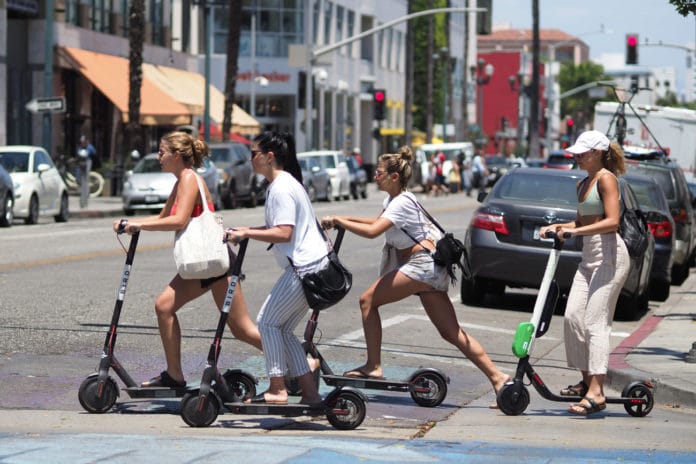People think of electric scooters or e-scooters as an eco-friendly way to get around the city. They think dockless electric scooters are more environmentally friendly than other modes of transportation and they don’t emit greenhouse gases.
However, a new study from North Carolina State University suggests that e-scooters are not as eco-friendly as they may seem. Researchers found that shared e-scooters may be greener than most cars, but they can be less green than several other options like by bus, bicycle, moped, or on foot.
For their study, researchers considered not only emissions produced by people riding scooters, but also the environmental impact of the materials and components that go into each scooter; the manufacturing process; shipping the scooter from the manufacturer to its city of use; and collecting, charging and redistributing the scooters. The vehicles that picked up the scooters created significant emissions.
Besides, when compared the impact of e-scooter to that of the other transport options, the team found that driving a car is almost always less environmentally friendly than using an e-scooter. But what’s more surprising was taking the bus on a route with high ridership is usually more environmentally friendly than an e-scooter.
Also, they conducted a survey of e-scooter riders to see what modes of transportation they would have used if they hadn’t used an e-scooter. Almost half of the riders said they would have walked or cycled if scooters were not available, and around one third said they would have taken a car.
According to the researchers, there are two major factors that contribute to each scooter’s environmental footprint. First is using other vehicles to collect and redistribute the scooters, and the second one is emissions related to producing the materials and components that go into each scooter. That means it is not only the scooters themselves, which are causing environmental damage but rather the infrastructure which supports them.
“There are a lot of factors to consider, but e-scooters are environmentally friendly compared to some modes of transport,” says Jeremiah Johnson, the corresponding author of the study and an associate professor.
“And there are things that companies and local governments can do to reduce their impacts further. For example, allowing — or encouraging — companies to collect scooters only when they hit a battery depletion threshold would reduce a scooter’s impact because you wouldn’t be collecting scooters that don’t need re-charging.“
